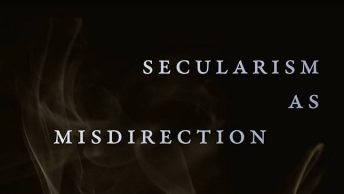 (Courtesy:www.indianexpress.com)
(Courtesy:www.indianexpress.com)
Indian Budget 2008 and the outcome of recent Pakistan elections may have little in common. But the debate that followed these two unrelated events seemed to throw interesting questions. The Indian Finance Minister, P.Chidambaram indicated towards the end of his interview to the CNBC channel that he favoured synchronizing of Lok Sabha and state assembly elections, only to immunize the budgeting and the governing process from political considerations. By now, he and his colleagues in the Government/Congress Party must be really tired of answering questions from the media whether his latest Budget is a political Budget with an eye on the likely general elections later this year.
Of all the responses that this question elicited, the one from Kapil Sibal that all Budgets are inherently political and populist appeared to make sense, as in any case, they cannot be expected to be anti-people. I was immediately reminded of the criticism of vote-bank politics being leveled against the UPA Government, when it enacted the Bill to reserve seats for OBCs in Central higher educational institutions. If Budgets hardly influenced the electorate – as many commentators have explained (Swaminathan Iyer in Economic Times represents this school of thought) – it can be equally claimed that legislative measures taken in a non-election year can hardly be described as attempts to build vote-banks.
To return to the import of Chidambaram’s remark – which was missed by the media – this is not the first time such a view has been expressed. In 2003, the then Deputy PM, Advani and the Vice-President, Shekhawat had expressed similar views. The Congress leader, and now the Union Minister, Pranab Mukherjee too favoured it. But the then Chief Election Commissioner, J.M.Lyngdoh strongly opposed it. The Hindu too was critical of it. This article explains the legal issues involved in it, in the backdrop of how the Constitutional Review Commission examined it. The report on Lyngdoh’s criticism can be read here as well.
As in 2003, the present suggestion from the FM also is vague and general – devoid of any specific proposal on how to go about it, or a serious intent to carry out a reform by the Government. We don’t know, for instance, how he found his latest or earlier budget-making exercises inhibited by frequent elections in States or by the impending Lok Sabha elections. He himself has denied that the 2009 general elections – which many believe could be advanced by the Government – influenced his latest Budget. If that is so, his view favouring synchronizing Lok Sabha and assembly elections hardly carries conviction.
In the U.S., Presidential and Congressional elections take place at different times, throwing a challenge to the pundits on how to interpret different mandates, though no one has seriously suggested that these two elections must be combined, to facilitate proper governance. In India, the outcome of 2004 Lok Sabha elections was differently interpreted. Some said it was a vote against the India Shining campaign of the then NDA Government. Some denied that it was a vote against the reforms process, but a vote for reforms with a human face. Others said it was an aggregation of State-level verdicts against incompetency, inefficiency and corruption at state levels. ( A strong argument, one would say, for delinking state and Lok Sabha elections, as it confuses the real mandates. Some might even argue that even if they are delinked, electors in a Lok Sabha election in India would still vote state-wise, as they are more influenced by State issues in a normal election). It would be a fascinating study if one undertakes research into the meaning of mandates since the 1952 elections in India on which I understand there has been no serious scholarly work so far.
Coming to Pakistan, should the latest election outcome be read as a mandate against Mushraff’s continuance in office? Soli Sorabjee in his column in today’s Express, is against any such inference. Mandates – whatever the margin of victory of the victors – cannot and should not be interpreted to draw negative conclusions. In 1977, the Janata Party interpreted the mandate as a signal to launch a vindictive campaign against Indira Gandhi and in 1980, they discovered that such a campaign was hardly helpful to sustain the mandate. Therefore, whatever the omissions and commissions of Mushraff, Soli is correct in suggesting that the mandate in Pakistan could be sustained if the new rulers learn to coexist with Mushraff.
Well, what is the link between Pakistan results and the Indian Budget? The connection lies in the lesson that those who are at the helm of governance in both New Delhi and Islamabad should worry less about the past and future election results – as there could be as many interpretations of the mandate as possible – while deciding specific issues before them.






